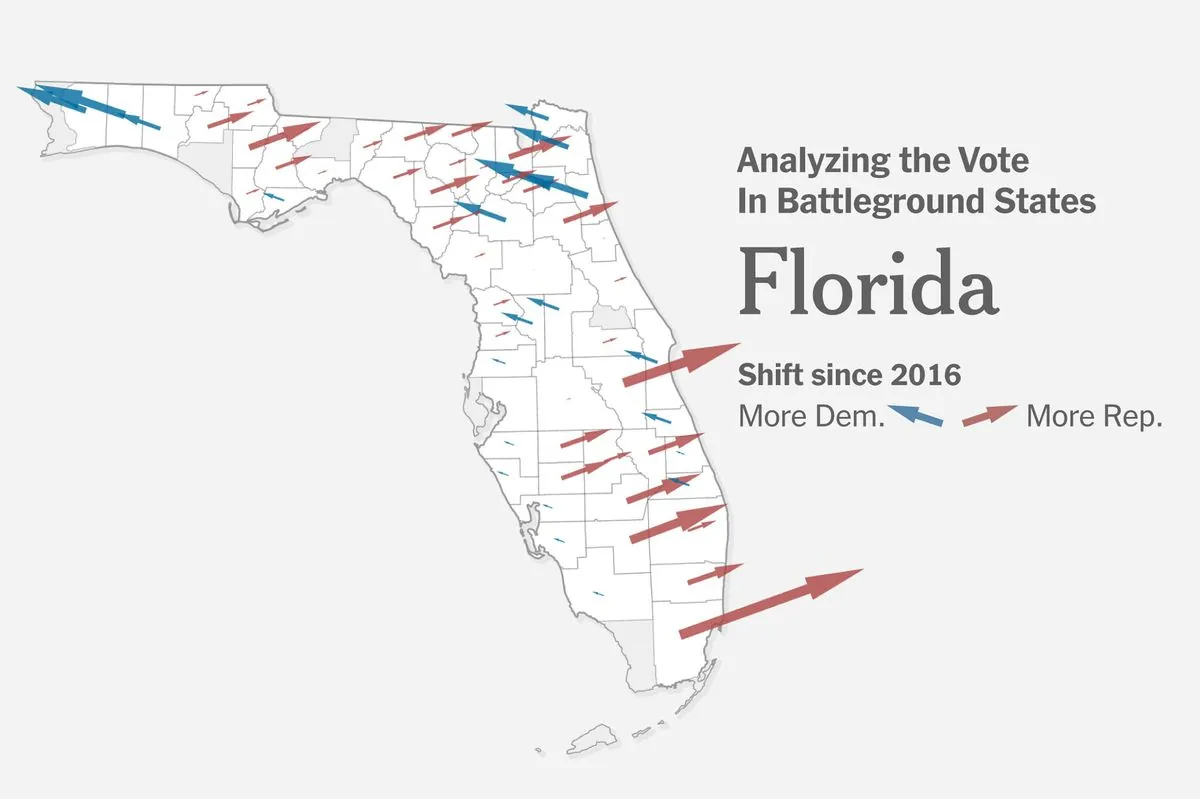In a surprising turn of events, Governor Ron DeSantis' efforts to expand his conservative education agenda in Florida schools encountered significant challenges in the recent school board elections held on August 20, 2024. The results indicate a potential shift in public sentiment regarding the governor's educational policies.
Of the 23 school board candidates endorsed by DeSantis, preliminary results show that 11 lost their election races, including some incumbents in traditionally conservative-leaning counties. Only six of the governor's preferred candidates secured victories, while another six are set to advance to runoff elections in November.
These outcomes stand in stark contrast to the 2022 elections, where 83% of DeSantis-backed candidates advanced, reinforcing Florida's rightward shift in education. The current election cycle saw a significantly lower success rate of 52% for the governor's endorsed candidates, based on preliminary tallies.
DeSantis, who became Florida's 46th governor on January 8, 2019, addressed the results on August 21, 2024, stating:
"Some of them that came up short, that's going to be something they can build on for future election cycles. If you look at where we were four or five years ago versus where we are now, there's much more interest on these school boards in protecting the rights of parents."
Critics of the Republican governor, however, interpret the results differently. Eileen Long, a Pinellas County School Board member who won re-election, views the outcome as a rebuke of DeSantis' education agenda. Long, a career teacher, successfully defended her seat against a challenger backed by DeSantis and the local chapter of Moms for Liberty, an organization founded in Florida in January 2021.
The election results may indicate a waning influence of the parental rights movement among primary voters in Florida. Matt Nelsen, a political scientist at the University of Miami, suggests that "the critical race theory fever is breaking" and that many parents desire an inclusive account of American history in their children's education.
Despite the setbacks, DeSantis-endorsed candidates did secure victories in some areas, including Democratic-leaning Duval County, home to Jacksonville, the most populous city in Florida. Conservatives will hold a majority on the Duval County school board when new members are sworn in this November.
It's worth noting that Florida, the third most populous state in the U.S., has 67 county school districts, each governed by an elected school board. These elections are typically nonpartisan, with board members serving four-year terms.
The Florida Democratic Party, which endorsed far fewer school board candidates than DeSantis this cycle, saw greater success. Nine of the party's 11 preferred candidates either won their races or will advance to runoffs.
As Florida continues to navigate its educational landscape, these election results may signal a reevaluation of the state's approach to school policies and curriculum. The outcome of the upcoming runoff elections in November could further shape the direction of Florida's education system in the years to come.
